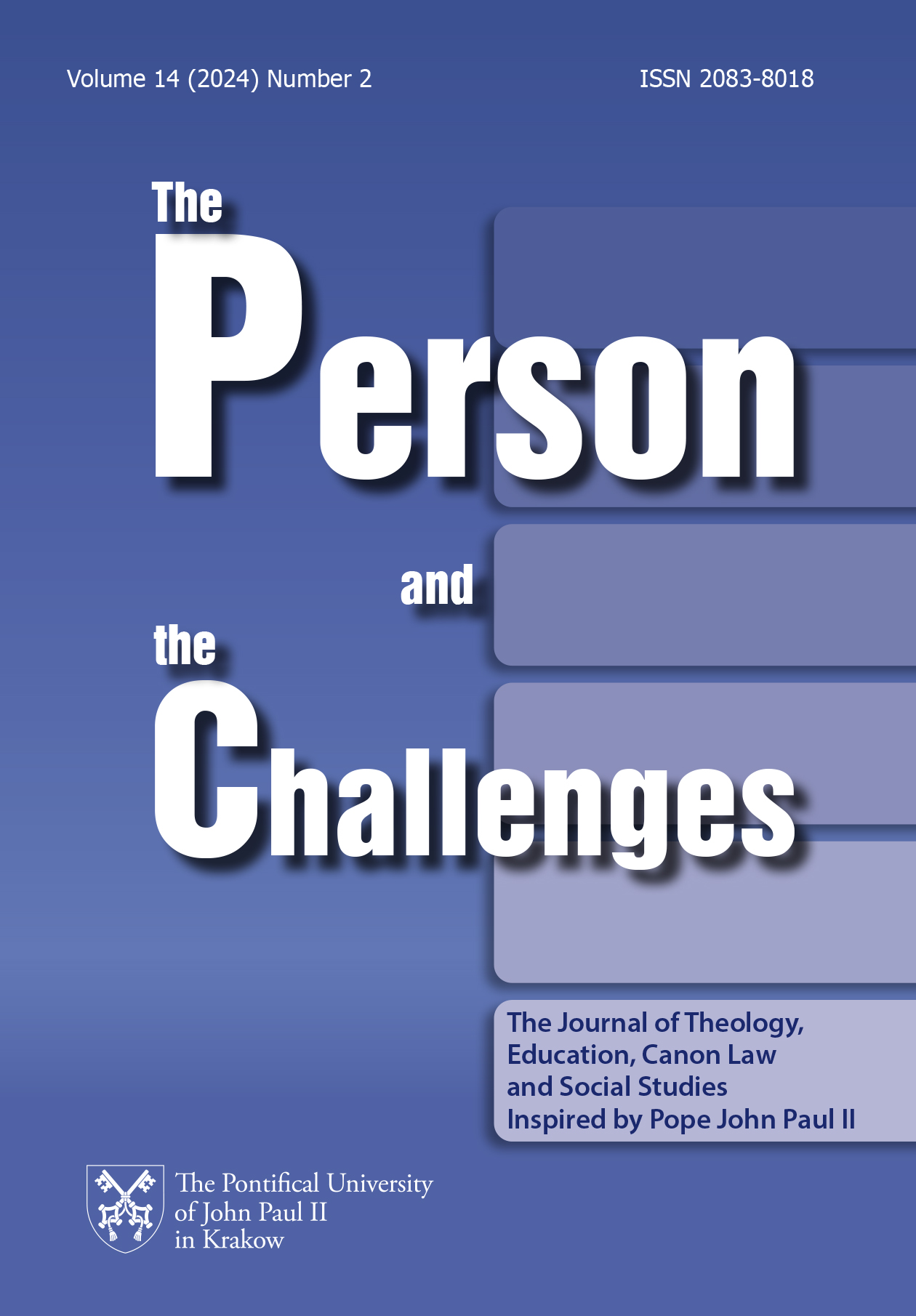The Directory for Catechesis and Family Catechesis in Slovenia
DOI:
https://doi.org/10.15633/pch.14214Słowa kluczowe:
Family catechesis, the Directory for Catechesis, parents, SloveniaAbstrakt
The article’s author presents family catechesis as one of the possible forms of catechising children. The foundations of family catechesis are found in the New Directory for Catechesis where it is clearly stated that catechesis starts in the family. In Slovenia, the family catechesis was born “from the bottom-up”, at the request of a group of parents. In the beginning, it was an alternative option, but today it is considered equal to other forms of catechesis. Children and young people, who participate in this catechesis together with their parents, may receive the sacraments of first Holy Communion, Confession, and Confirmation. After ten years of experience, the results are positive and open new catechetic ways and possibilities. This is a new approach, a new method, for which the Directory for Catechesis says: “Catechesis does not have a single method, but is open to evaluating different methods, engaging in pedagogy and didactics and allowing itself to be guided by the Gospel necessary for recognizing the truth of human nature” (Directory for Catechesis no. 195).
Bibliografia
Centa Strahovnik M., Čustva in vloga telesa v kontekstu biblijskih zgodb, »Bogoslovni vestnik« 83 (2023) Nr. 3, pp. 581–595. DOI: 10.34291/BV2023/03/Centa.
Nežič Glavica I., Družina — „skriti” potencial Cerkve, in: J. Vodičar, Vemo namreč, da ste izvoljeni! Od klerikalizacije do sinodalnosti v pastorali in katehezi, Ljubljana 2022, Teološka fakulteta Univerze v Ljubljani, pp. 49–57.
Družinksa kateheza — primer dobre prakse, https://www.druzina.si/clanek/druzinskakateheza-primeri-dobre-prakse-foto (03.05.2024).
Družinska kateheza (nov pristop k verouku) se uspešno širi tudi po Ljubljani, https://www.iskreni.net/druzinska-kateheza-nov-pristop-k-verouku-se-uspesno-siri-tudipo-ljubljani/ (03.05.2024).
Kaj je to družinska kateheza (Družinska kateheza Veseli kristjani), https://natalijapodjavorsek.splet.arnes.si/?page_id=2535 (22.03.2024).
Kraner D., L’approccio pastorale dialogico alla luce del Sinodo, »The person and the challenges« 13 (2023) Nr 1, pp. 173–187. DOI: 10.15633/pch.13111.
Kraner D., Sodobni učitelj, komunikacija in resonanca v odnosih, »Bogoslovni vestnik« 83 (2023) Nr 1, pp. 227–239. DOI: 10.34291/BV2023/01/Kraner.
Nežič Glavica I., Der Beitrag der integrativen Gestaltpädagogik nach Albert Höfer im Bereich der holistischen Religionspädagogik, »The Person and the Challenges« 9 (2019) Nr 1, pp. 205–223. DOI: 10.15633/pch.3370.
Pavel VI, Govor članom splošnega zasedanja Italijanske škofovske konference (23. 6. 1966), v: Insegnamenti di Paolo VI, IV (1967).
Platovnjak I., The Importance of Marriage Groups for Marriage and Family Life. A Survey of Our Way Marriage Groups, »Obnovljeni život« 78 (2023) Nr 4, pp. 479–492. DOI: 10.31337/oz.78.4.5.
Platovnjak, I., Družine s predšolskimi otroki potrebujejo pri svojem poslanstvu posredovanja vere več razumevanja, sprejetosti in bližine v Cerkvi na Slovenskem, »Bogoslovni vestnik« 80 (2020) Nr 2, pp. 355–370, DOI: 10.34291/BV2020/02/PlatovnjakPravilnik za katehezo.
Šegula A., Catechesis for confirmation as a pastoral challenge in Slovenia, in: J. Garmaz, A. Čondić (eds.), Challenes to religious education in contemporary society, Split 2017, Crkva u Svijetu, pp. 196–209.
Šegula A., Katehetsko področje dela v slovenskem prostoru po drugem vatikanskem koncilu, »Bogoslovni vestnik« 73 (2013) Nr 2, pp. 279–287, DOI: http://www.teof.uni-lj.si/uploads/File/BV/BV%202013%202/BV-73-2-Segula.pdf.
Snoj A. S., Katehetika — didaktična izhodišča religijskega, verskega in katehetskega pouka, Ljubljana 2003, wyd. Salve.
Stala J., Parents Catechesis: for Children, Familiy or for Adults?, »The Person and the Challenges« 13 (2023) Nr 2, pp. 37–51, DOI: https://doi.org/10.15633/pch.13203.
Stegu T., Lepota in kerigma v tehnološki dobi, »Bogoslovni vestnik« 83 (2023) Nr. 4, pp. 1024–1025. DOI: 10.34291/BV2023/04/Stegu.
Vodičar J., Holarhični model celostne resonančne pedagogike za novo katehezo, »Bogoslovni vestnik« 82 (2022) Nr 3, pp. 691–704. DOI: 10.34291/BV2022/03/Vodicar.
Pobrania
Opublikowane
Numer
Dział
Licencja
Prawa autorskie (c) 2024 Andrej Šegula

Utwór dostępny jest na licencji Creative Commons Uznanie autorstwa 4.0 Międzynarodowe.
Autorzy publikujący w czasopiśmie udzielają jego wydawcy zgody o następującej treści:
- Autor zachowuje autorskie prawa majątkowe do utworu, a jednocześnie udziela wydawcy czasopisma zgody na jego pierwszą publikację w wersji drukowanej i wersji online na licencji Creative Commons Uznanie autorstwa 4.0 Międzynarodowe oraz zgody na wykonywanie opracowań, w tym przekładów.
- Autor ma możliwość udzielania zgody niewyłącznej na opublikowanie utworu w wersji, która ukazała się w czasopiśmie (np. zamieszczenia go w repozytorium instytucjonalnym lub opublikowania w książce), wraz z informacją o jego pierwszej publikacji w czasopiśmie.
- Autor może umieścić swój utwór online (np. w repozytorium instytucjonalnym lub na swojej stronie internetowej) jeszcze przed zgłoszeniem utworu do czasopisma.

